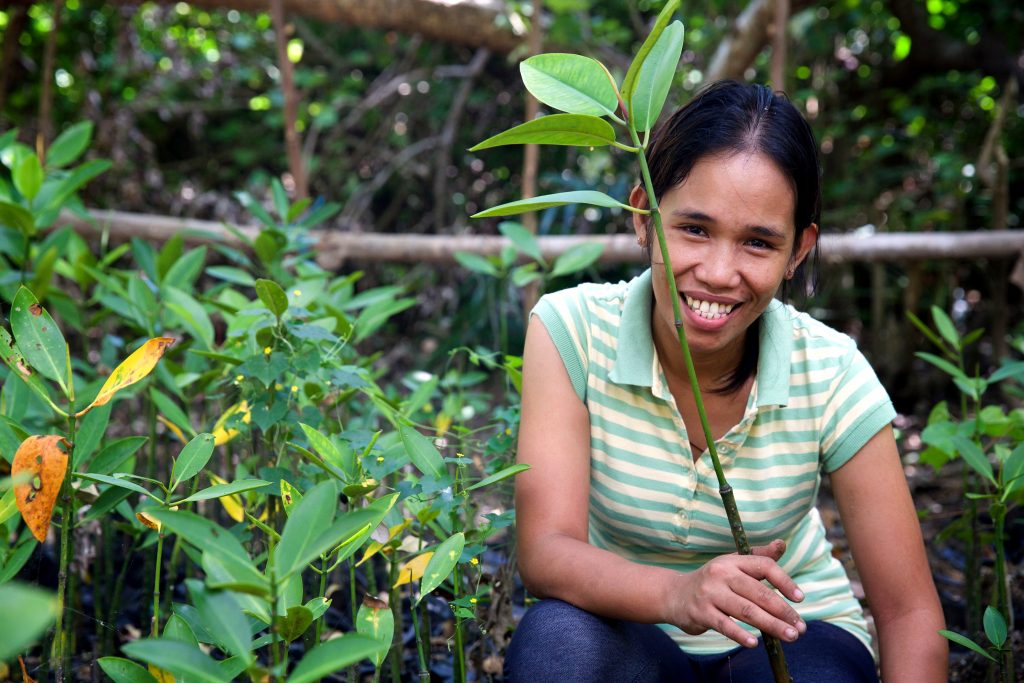
Caritas Australia is supporting and empowering Filipino communities like Aloma’s, in the aftermath of extreme weather events and the effects of climate change.
Through Aloma’s work with an Integrated Community Development Program (ICDP), supported by Caritas Australia, she has become a community leader, helping develop sustainable mangrove rehabilitation and coastal protection practices.
“The greatest change in my life was to realise that the environment is very important. We grew up cutting down all the trees around us, including the mangroves … and using [them] for firewood,” Aloma said.
“Now, instead, we are planting the mangroves for our own protection.”
A few years ago, Aloma’s village was a scene of devastation – high winds and high seas battered a barren stretch of sand.
Extreme weather is a common enough occurrence in this vulnerable area, threatening the safety and food security of families struggling to survive.
In 2009, when Typhoon Santi raged, Aloma and her small children cowered while their home fell to shreds around them.
With Aloma’s training, her sense of security and her confidence grew along with her awareness of the role she could play in caring for the land.
“It is important to protect the environment. We are in a coastal area, and mangroves will protect us from a tsunami or flooding,” Aloma says.
Things first began to change for the family in 2011, when Aloma became a participant in the ICDP run by the Socio Pastoral Action Center Foundation Inc. (SPACFI).
“I was so happy… I understood that the program would help the poor people in the village.”
Aloma gained a range of skills through the program including bookkeeping, managing emergency logistics, and environmental conservation.
Inspired by Aloma’s leadership, the whole community now comes together, with children and adults working in the mangrove nursery.
“The community finds it enjoyable. It’s just like community bonding for them, going to the areas and planting the mangroves. Now it’s become their lifestyle to protect the coastal area [using] mangroves,” Aloma says.
Community-wide training in coastal management has enabled everyone to see the value of working together. Now the villagers are preparing a plan that will help them mitigate the impact of disasters in their area.
Gazing out through the rows of mangroves, Aloma shares her dream for her family, for her community, and for their common home.
“I have a simple dream for my family, that my children will be able to finish their schooling, unlike us, and eventually they will have a better future.
“My dream for my community is to continue what we are doing right now, so that the next generation will benefit from what we have started.”
Please donate to Project Compassion 2017 and help communities in coastal areas of the Philippines to care for their environment.